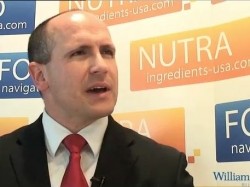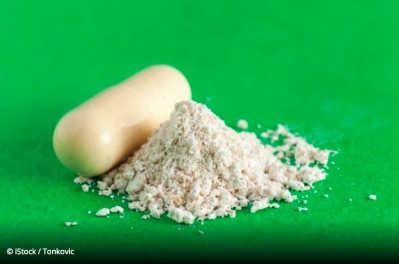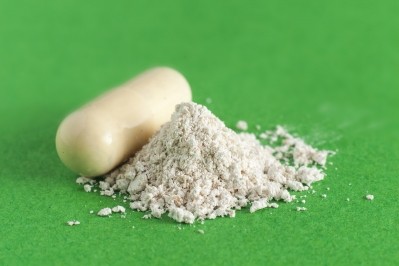Updated: CRN says study's findings do not warrant any blanket warnings
NPA’s Fabricant on liver injury data: ‘FDA has not been shy about acting on issues on hepatotoxicity’

Data from 839 people referred to a Drug-Induced Liver Injury Network (DILIN) center with hepatotoxicity indicated that 130 (15.5%) were from herbals and dietary supplements, with 45 caused by bodybuilding products and 85 from non-bodybuilding supplements. (The other 709 were due to medications, excluding acetaminophen (Tylenol).)
Analysis of the data over time showed that liver injury due to bodybuilding supplements accounted for 2% of cases in 2004-5, and increased to 8% in 2010-12. Likewise, increases related to non-bodybuilding supplements rose from 5% in 2004-5 to 12% in 2010-12.
Commenting on the paper, Dr Fabricant, who is the former director of the Division of Dietary Supplement Programs at the FDA, told us that there are a few holes in the paper. “I find it odd that certain confounders were not ruled out with respect to dosing or following the manufacturer’s instructions, and yet they claim to have a high degree of confidence in the conclusions.”
“The Agency hasn’t been shy about acting on issues on hepatotoxicity, whether it was in relation to Hydroxycut [in 2009] or OxyElite Pro [in 2013],” said Dr Fabricant.
“The take home for industry is for them to look again at their processes: What do you need to do as a company to continue to ensure quality and safety of formulations? How do you handle your AERs? And so on.”
‘Take note of these findings’
The authors, led by Dr Victor Navarro, from Einstein Medical Center Philadelphia, noted in their scientific paper: “The DILIN is not a population-based study, and although there was an increasing proportion of disease attributable to herbals and dietary supplements during the study, it cannot be concluded that the problem is actually on the rise in the United States.
“Notwithstanding the need to accurately determine the incidence of drug- and dietary-supplement–induced liver injury in the United States, a better understanding of the impact of the problem on the population will permit proportionate allocation of resources toward research.
“All stakeholders, including the dietary supplement industry, regulatory agencies, health care providers, and consumers, must take note of these findings if a culture of safety for herbals and dietary supplements use is to be established.”
Specifics
The 10 year data indicated that bodybuilding supplements caused prolonged jaundice (median 91 days) in young men, but no fatalities or liver transplantations were recorded.
On the other hand, death or liver transplantation occurred more frequently among cases of injury from non-bodybuilding supplements, 13%, than from conventional medications, 3%. Liver injury from non-bodybuilding supplements was more common in middle aged women, they added.
“While many Americans believe supplements to be safe, government regulations (Dietary Supplement Health and Education Act of 1994) require less safety evidence to market products than what is required for conventional pharmaceuticals” said Dr Navarro.
“With less stringent oversight for herbals and dietary supplements, there is greater potential for harmful consequences including life-threatening conditions.”
Call for on-going dialogue
Duffy MacKay, ND, senior vice president, scientific and regulatory affairs for the Council for Responsible Nutrition (CRN), commented: “Over the last several years, the prevalence of liver injuries from all causes has increased worldwide, and we commend the researchers and doctors who have made it a priority to look for causes and solutions to this problem. The study is well-designed and identifies statistics for drugs and dietary supplements that are important to watch, but does not warrant any blanket warnings in the area of supplements or supplement regulations, except to remind consumers to talk with their doctor about the supplements they take.
"The 165 cases of liver injury, while tragic, do not identify any patterns of concern, and dietary supplement regulation includes a serious adverse event reporting system that would help identify patterns were they to exist. Questions also remain about whether the serious results were idiosyncratic, related to adulterated products (which are illegal), associated with taking the product off-label, or some other confounding factor.
"We agree with the researchers that all stakeholders, including the industry, should take note of these findings. We’d further suggest on-going dialogue between researchers, industry, regulatory agencies and healthcare practitioners so that should patterns develop, companies could take any necessary steps. We continue to urge FDA to take swift action to remove from the market any drugs being illegally marketed as dietary supplements. Finally, we remind the supplement industry of the importance of the Adverse Event Reporting law, and urge companies to follow procedures for reporting serious adverse events.”
Source: Hepatology
Published online ahead of print, doi: 10.1002/hep.27317
“Liver injury from Herbals and Dietary Supplements in the US Drug Induced Liver Injury Network”
Authors: V.J. Navarro, H. Barnhart, H.L. Bonkovsky, et al.









